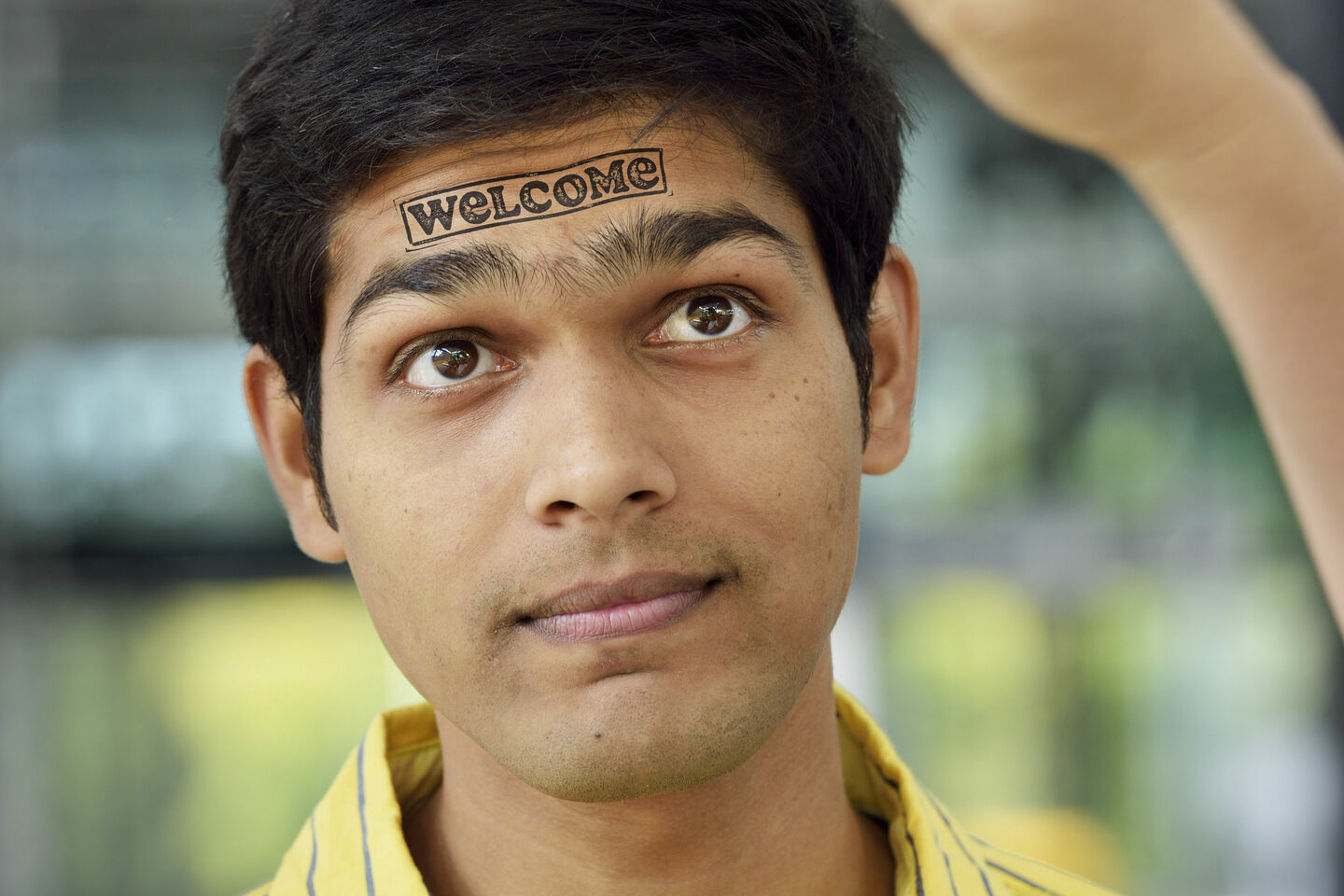
How do you ensure that everyone feels welcome?
Newcomers, and in particular master's students and PhD students, do not always feel equally welcome at the TU/e. In order to change that, the university will soon launch a large-scale project in collaboration with five other European universities with similar experiences.
Mexican Norma Arrazola Herrera (second-year master's student in Human-Technology Interaction) can only describe her first time in our country as a ‘culture shock’: everything was different. “I only knew that Dutch people cycle a lot and that the Netherlands is known for its tulips - but that was about it. First of all, I did not expect my room to be unfurnished; I didn't find a blanket on my bed and I had no idea where I could buy one. English did not help me everywhere; when I wanted to buy garlic, I didn't know the Dutch word. It was also my first time in Europe. In Mexico people play the guitar and are noisy on public transport and in Switzerland I was told to be quiet. I felt completely lost. I am still cautious in my behavior. If you grew up with certain social norms your entire life, it is a challenge to master new ones.”
Experiences like these are no exception at the TU/e: it takes quite some effort from master's students and PhD students to ground at our university, and sometimes that also counts for the Netherlands as a whole. "Things often go well until the Intro and they feel welcome, but after that the feeling changes," notes Erik de Jong, community manager at our university.
Contact with the CLUSTER network, a partnership of twelve European universities of which the TU/e is also a member, revealed that other partners face the same problems. De Jong: “We all invest a lot of time and energy in recruiting, but especially during the first three months the newcomers are here, we often fail. And research shows that those are the months they are most open to new developments."
Another observation: the universities find it difficult to let the local and international students become one group. The community manager: “At the TU/e you can also see that groups are formed, for example groups of Chinese people. And people from Limburg and people not from that province form separate groups.” The universities do not only want to combat the feelings of loneliness that exist among some newcomers, but they want to prepare all students and staff for an international future. "The engineer of the future has to deal with international issues such as health care or the climate. It is in their favor if they learn to work with other nationalities early on and as a result fewer subgroups are formed."
Collaboration
Six of the twelve ‘CLUSTER universities’ have now started a collaboration with the InComm - Feel at home project. Besides the TU/e these are the KTH in Stockholm, the Technische Universität Darmstadt, the UPC Barcelona, the IST in Lisbon and the TU in Graz, Austria. They want to create a ‘welcoming process’ within the next three years, containing the best practices of the individual universities.
It is a conscious choice of the universities to focus specifically on master's students and PhD students, TU/e’s community manager explains: “Possible improvements are the biggest for that group. We want to start there and then use the best practices for bachelor students and staff.” The partnership also wants to give other universities input on how they can improve on welcoming staff and students.
The financial support for the project has now been arranged, although it took De Jong a long time lobbying to get it. “The application was sent through Nuffic and got rejected. The same application to a similar authority in Sweden was granted."
The international project team, which consists of almost twenty members, will have the official kick-off of the project at TU/e on October 20th and 21st.
According to De Jong, we don't have to wait three years for improvements to be implemented at TU/e. “We will be conducting a survey in the coming period, appointing project leaders and start developing ideas. You can think of buddy systems, but also assignments to get to know the university better and training programs on intercultural awareness and the international classroom."
Buddy system at IE&IS
The department of IE&IS has been working with a buddy system for foreign master’s students since 2011. The study advisors together with the board of the program decided on this after a survey among master’s students revealed that many foreign students felt ‘lost’. The buddy is a student selected by the study advisor who also starts the master himself and is trained in preparation by staff from Education and Student Affairs.
The buddies help the international newcomers within their department from the end of August till the end of December, by explaining them about the digital education systems at the TU/e, about education itself, about how to approach to subjects, about group work and about culture in the Netherlands and specifically at the TU/e. According to Wil Kuijpers, study advisor at the department, the experiences so far are very positive: "Foreign students feel really welcome and feel home faster, both at the TU/e and in the Netherlands."
"Then you find yourself in that situation"
Bo Drummen, master's student of Human-Technology Interaction, is now a buddy for the second time. After her own adventure abroad in Ancona, Italy, she really realized what it's like to be a newcomer. “Then you find yourself in that situation. To be honest, during my bachelor’s I preferred to do group projects with Dutch people, as they know how it works. Now those groups are more mixed anyway and I see the added value of multiple nationalities in one group and that you can help them on their way.”
Bo had eight students under her wing last year, four this year. During various meetings she teaches the international master's students everything about Dutch culture and about student life. And the newcomers can also contact her if they have questions. “Among other things, I teach them that they have to be on time, that they have to be honest and ask for help. For example, I recently helped a student who did not know how to address her professor in an e-mail. Sometimes we all go out for a drink and we went to GLOW. I mainly help students on their way, if they have detailed questions, I refer them."
Last year she supervised Mexican Norma Arrazola Herrera, among others. By now she feels quite at home here, but it was quite hard for her the first year. “I experienced a great deal of pressure to have to like it here. I didn't want to give my family and friends in Mexico the impression that I thought it was tough. Only later did I hear from more students that they were struggling to get used to it, but there was hardly any talking about it.”
The buddy project helped her on her way. “I dare to ask Bo more, because she is a fellow student. She feels much more accessible. For example, if I have questions about how to organize my graduation thesis, I go to her first.”
But Norma really felt more at home when she learned Dutch and participated in activities like those from TINT. “Unfortunately, I only discovered those later in my studies. It would be good if new international students get a basic Dutch course as a standard." Bo: “We also give tips like these, but at the start they already get so much information."
"TU/e is not a Dutch university that also hosts internationals"
The Surinamese Jamie Tjong-Ahin has had few problems to feel at home at the TU/e. “It was mostly new to me. Though once when I was six, I spent my vacation in the Netherlands. I had to get used to the weather, to the fact that the Dutch eat their biggest meal in the evening and that they drive on the right side of the road here. But what helped me is that I speak the language and I therefore quickly understood a lot. I felt welcome, mainly thanks to Cosmos." The second-year bachelor's student in Built Environment is the chairwoman of that international student association this academic year. “It is one of the few places on campus where so many different cultures come together. The great thing is that our visitors can learn a lot from each other and that students also meet people from other studies.
Dutch students sometimes have the feeling that they are not welcome here, but the contrary is true.It is not so much about internationals learning what Dutch habits or traditions are like, but rather that Dutch people and people with other nationalities learn something from each other. The TU/e is an international university, not a Dutch university that also hosts internationals.
I recently discussed this subject with a master's student and she thought that the approach should not be ‘how do you make sure that internationals feel at home better’, but ‘how do you make everyone feel welcome’. You should not see internationals as one group, you have a lot of nationalities within them." It would be good if the TU/e organized more activities such as Connect with my Culture to make newcomers feel at home better. We from Cosmos want to help with that.”
"Everyone must feel at home at the new workplace"
Daphne Menheere and Carlijn Valk set up the PhD Council within Industrial Design with fellow PhD students Baisong Liu and Kyra Frederiks last year. Amongst others, they try to involve PhD students within their department in activities, share knowledge, collect information and discuss it in the university-wide PhD council.
Carlijn: "We have had a good time ourselves, but it is sometimes more difficult for others to connect." The American Carlijn had already been at the TU/e for an exchange semester, but when she started her master’s in the Netherlands, she only knew few people. “Many students start their master's after they have finished their bachelor's degree (in that place, ed.) and groups of friends have already been formed during that previous phase. That is normal, but that makes it more difficult to intervene as a newcomer. I learned Dutch by practicing a lot, which made me feel at home faster. At the university everyone speaks English, but I understand that this cannot be expected from everyone in their private time. The shift to being a doctoral candidate was also new. I had nice colleagues in my office and in my corridor. That helped. I got to know people outside of my immediate surroundings better when, for example, I went to conferences or organized activities with others.”
The American mainly saw differences in ‘small other social habits’. “In the US, neighbors come to you when you are new, here it’s the other way around. And there, people bring you cake on your birthday, you don't have to treat yourself.”
At the university everyone speaks English, but I understand that this cannot be expected from everyone in their private time
Daphne has been around since her bachelor at the TU/e. “Because only a few master’s students continue with a PhD, and I did something different for a year after my master’s, many people were new for me when I started my PhD. My new colleagues made me feel welcome, and I also like to chat with others."
Since last year, the two PhD students have been working hard to make the ID PhD Council a closer group of the PhD students within their department and to share knowledge. Daphne: “You are often on your own as a newcomer to our department. We sometimes go for pizza or drinks, that feels less forced." Carlijn adds that lunch time also differs for the various PhD students: "We have learned from our fellow members of the ID PhD Council that lunch time at noon is very early for some PhD students due to cultural differences. Good to realize when organizing events around lunch time that Dutch lunch time is not logical for everyone."
Why work from home?
"We also notice that quite a lot of PhD students regularly work from home. We want to find out why this happens and how we can improve the working environment.” They also organize workshops and try to answer questions in groups. Daphne: "You can think of questions such as ‘what if I can't get along with my supervisor’ or ‘I feel isolated, what do I do about it?’ We also try to retrieve information that we can share with the director of the program. For example which courses are important, specifically for Industrial Design.”
The two believe that ‘welcoming’ can best be addressed at different levels within the university. Carlijn: “Within ID there are other issues than within the university. It is good to have a general introduction, but as a newcomer you also want to know more about your department and other PhD students in your department." Daphne agrees: "In the end you want everyone to feel welcome at the new workplace."
PhD-PDEng Office
The PhD-PDEng Office will be set up further during the coming months: a central place for information about all practical and organizational issues that PhD students and PDEng trainees encounter in addition to their research work. Also, a PhD/PDEng psychologist has been appointed and a PhD/PDEng counselor is to be appointed. Cursor wrote about this earlier.
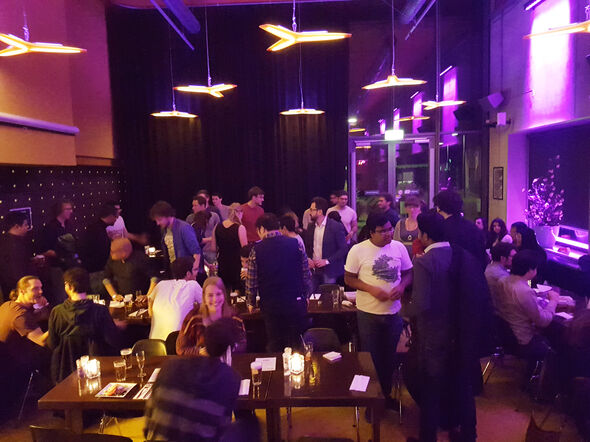

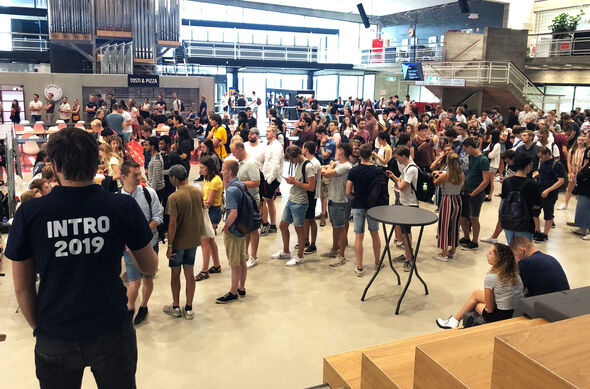
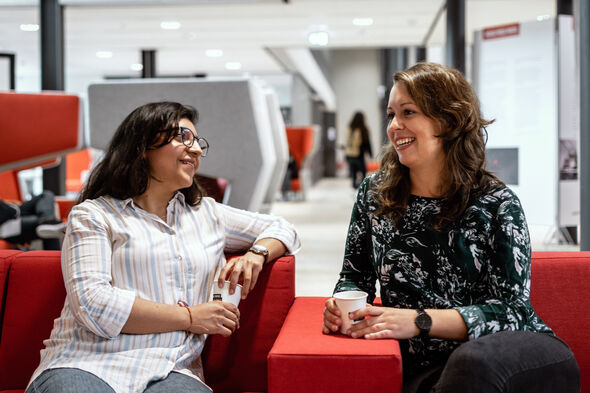
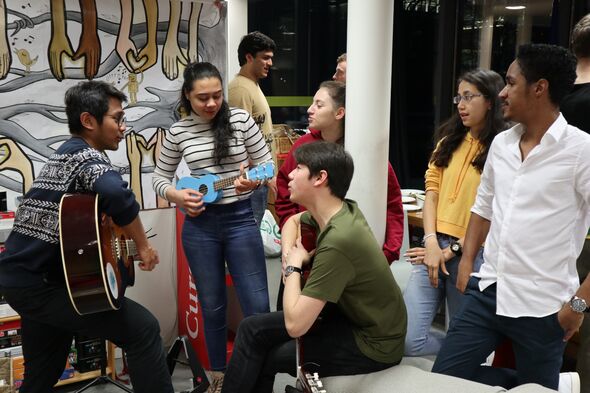
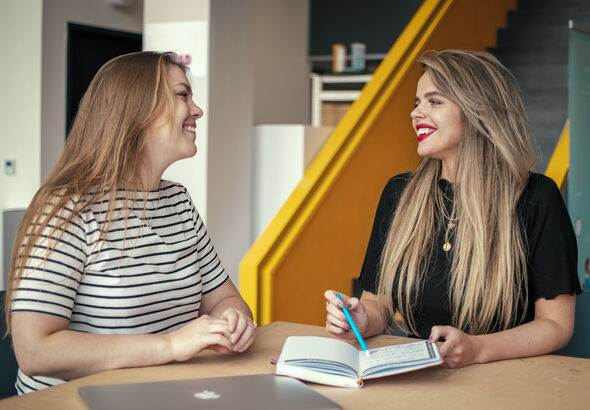
Discussion